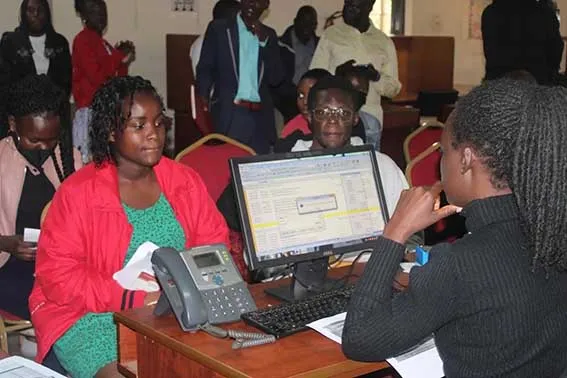By Israel Kisakye
The Covid-19 pandemic left much of the world on its knees. For others, it was an elevation opportunity. One such area related to the latter is the registration of resident students at Uganda Christian University (UCU). The university rolled out an online registration method to alleviate physical contact as the institution tried to keep up with the standard operating procedures against the spread of coronavirus.
“Students who have paid their full accommodation fees and 45% of the tuition fees are able to register online,” the Rev. Simon Peter Ddamba, the UCU warden for Nsibambi Hall, said. The development, according to Ddamba, has eased the registration process for both the students and the university.
However, some students who did not want their names to go on record do not agree. They say the online system sometimes locks them out, keeping them from completing the registration.
When Uganda Partners put this challenge to Bridget Mugume, the Director of Student Affairs at UCU, she said some of the students facing obstacles are those who have not met the requirements for online registration – paying full boarding fees and 45% of the accommodation fees. (At the time of writing this story, our writer attempted to register online, and he confirmed that the system was working well.)
Mugume noted that the new system has enabled the capture of students’ data from the time they report for studies.
“All the information is in the database, where it can be easily be tracked,” she said.
In a promotion video recorded in 2021, Ddamba said the halls of residence are equipped with computer laboratories and internet hotspots to enable students do research.
The university also has reduced the number of residents in a room from four, before Covid-19, to two.
Racheal Birungi, a student of Bachelor of Science in Accounting and Finance, who resides in Sabiti Hall, says they are having the best time of their lives in the halls due to a reduction in the number of occupants in a room.
“We no longer share wardrobes; this has created comfort and enough space in the rooms,” Birungi says.
UCU has two halls of residence – Sabiti for female students and Nsibambi for male students. The reduction in the number of occupants per room means less students will be accommodated than before. However, to cover some of the gap that has been created, the university in February 2022 acquired the Ankrah Foundation premises. UCU is currently using the facility for a resource centre, as well as accommodation for students, among others.

The Kodwo and Maxine hostel at Ankrah Foundation has 142 rooms, with each room accommodating two students. At least 116 students are currently residing at the hostel, with the number expected to increase. Innocent Owora, the Kodwo and Maxine hostel Residential Assistant, said with two students occupying each room, incidences of theft will be greatly reduced.
Ddamba said to augment the security, plans are underway to install security cameras at the students’ halls of residence.
There also are plans to establish single-rooms at the Kodwo and Maxine hostel. Mugume said there are 100 single-rooms that are being renovated into accommodation facilities at the Ankrah Foundation.


